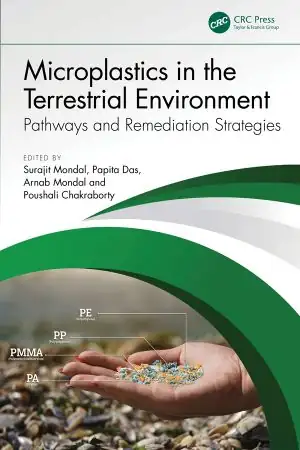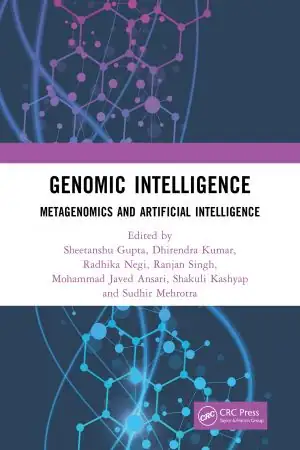
Benson’s Microbiological Applications, Laboratory Manual in General Microbiology, Short Version, 13th Edition
- Length: 480 pages
- Edition: 13
- Language: English
- Publisher: McGraw-Hill Education
- Publication Date: 2014-01-21
- ISBN-10: 0073402419
- ISBN-13: 9780073402413
- Sales Rank: #265473 (See Top 100 Books)
Benson’s Microbiological Applications has been the gold standard of microbiology lab manuals for over 30 years. The self-contained, clearly-illustrated exercises and four-color format makes this the ideal lab manual. Appropriate for either a majors or non-majors lab course, this manual assumes no prior organic chemistry has been taken.
Table of Contents
PART 1 Microscopy
Chapter 1 Brightfield Microscopy
Chapter 2 Darkfield Microscopy
Chapter 3 Phase-Contrast Microscopy
Chapter 4 Microscopic Measurements
PART 2 Survey of Microorganisms
Chapter 5 Microbiology of Pond Water—Protists, Algae, and Cyanobacteria
Chapter 6 Ubiquity of Bacteria
Chapter 7 The Fungi: Molds and Yeasts
PART 3 Manipulation of Microorganisms
Chapter 8 Aseptic Technique
Chapter 9 Pure Culture Techniques
PART 4 Staining and Observation of Microorganisms
Chapter 10 Smear Preparation
Chapter 11 Simple Staining
Chapter 12 Negative Staining
Chapter 13 Capsular Staining
Chapter 14 Gram Staining
Chapter 15 Spore Staining: Two Methods
Chapter 16 Acid-Fast Staining: Kinyoun Method
Chapter 17 Motility Determination
PART 5 Culture Methods
Chapter 18 Culture Media Preparation
Chapter 19 Enumeration of Bacteria: The Standard Plate Count
Chapter 20 Slide Culture: Fungi
PART 6 Bacterial Viruses
Chapter 21 Determination of a Bacteriophage Titer
Chapter 22 Isolation of Phages from Flies
Chapter 23 Phage Typing
PART 7 Environmental Influences and Control of Microbial Growth
Chapter 24 Effects of Oxygen on Growth
Chapter 25 Temperature: Effects on Growth
Chapter 26 pH and Microbial Growth
Chapter 27 Water Activity and Osmotic Pressure
Chapter 28 Ultraviolet Light: Lethal Effects
Chapter 29 The Effects of Lysozyme on Bacterial Cells
Chapter 30 Evaluation of Alcohol: Its Effectiveness as an Antiseptic
Chapter 31 Antimicrobic Sensitivity Testing: The Kirby-Bauer Method
Chapter 32 Evaluation of Antiseptics: The Filter Paper Disk Method
Chapter 33 Effectiveness of Hand Scrubbing
PART 8 Identification of Unknown Bacteria
Chapter 34 Morphological Study of an Unknown Bacterium
Chapter 35 Cultural Characteristics
Chapter 36 Physiological Characteristics: Oxidation and Fermentation Tests
Chapter 37 Physiological Characteristics: Hydrolytic and Degradative Reactions
Chapter 38 Physiological Characteristics: Multiple Test Media
Chapter 39 Use of Bergey’s Manual
PART 9 Miniaturized Multitest Systems
Chapter 40 Enterobacteriaceae Identification: The API 20E System
Chapter 41 Enterobacteriaceae Identification: The Enterotube II System
Chapter 42 O/F Gram-Negative Rods Identification: The Oxi/Ferm Tube II System
Chapter 43 Staphylococcus Identification: The API Staph System
PART 10 Applied Microbiology
Chapter 44 Bacterial Counts of Food
Chapter 45 Bacteriological Examination of Water: Most Probable Number Determination
Chapter 46 Bacteriological Examination of Water: The Membrane Filter Method
Chapter 47 Reductase Test
Chapter 48 Temperature: Lethal Effects
Chapter 49 Microbial Spoilage of Canned Food
Chapter 50 Microbiology of Alcohol Fermentation
PART 11 Medical Microbiology
Chapter 51 The Staphylococci: Isolation and Identification
Chapter 52 The Streptococci and Enterococci: Isolation and Identification
Chapter 53 Gram-Negative Intestinal Pathogens
Chapter 54 A Synthetic Epidemic
PART 12 Immunology and Serology
Chapter 55 Slide Agglutination Test: Serological Typing
Chapter 56 Slide Agglutination Test for S. aureus
Chapter 57 Slide Agglutination Test for Streptococcus
Chapter 58 The Heterophile Antibody Test
Chapter 59 Blood Grouping
Appendix A: Tables
Appendix B: Indicators, Stains, Reagents
Appendix C: Media
Appendix D: Identification Charts







